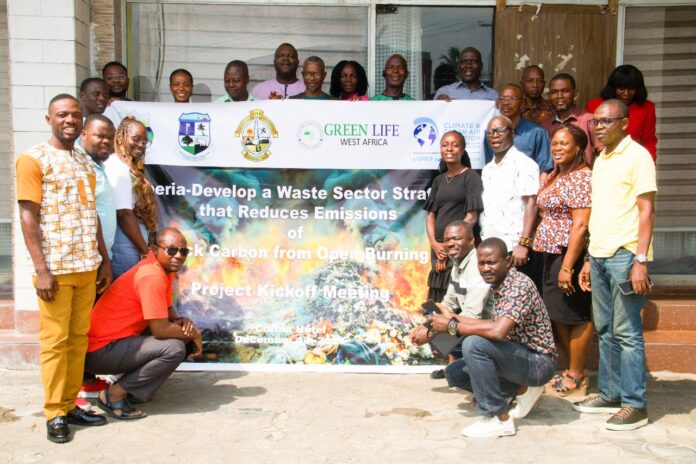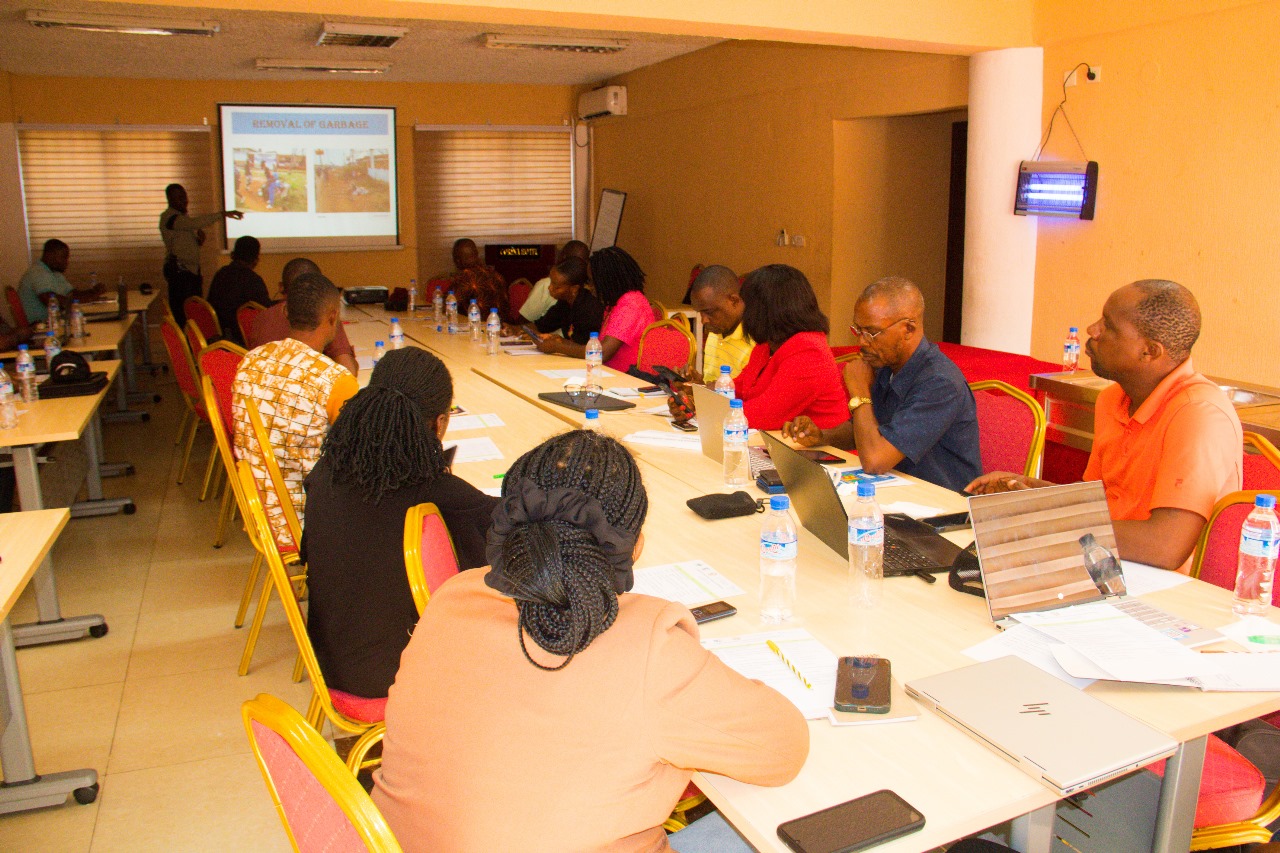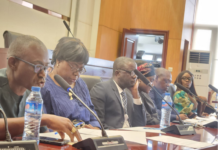
In a collaborative effort to combat air pollution and its effects on global warming and public health, GREENLIFE West Africa and the Environmental Protection Agency (EPA) of Liberia concluded a kickoff meeting on the Black Carbon project in Monrovia on Friday, December 13, 2024.
The project is called, “Liberia – Develop a Waste Sector Strategy that Reduces Emissions of Black Carbon from Open Burning.” It is funded by the Climate and Clean Air Coalition (CCAC) of the United Nations Environment Program (UNEP).
The meeting brought together stakeholders from various sectors, including representatives from the Monrovia City Corporation (MCC), Paynesville City Corporation (PCC), private sector waste management groups, and civil society organizations.
This event marked the official start of an initiative aimed at reducing harmful black carbon emissions from open burning in Monrovia and Paynesville.
Call to Action Against Air Pollution
During the day-long meeting, James A. B. Brown, III, Technical Assistant to the Mayor of Monrovia, detailed the current challenges the city faces regarding waste management and explained how the municipal government is working to address these issues. He noted that Monrovia is overwhelmed with solid waste, leaving many residents to engage in open burning, which significantly contributes to black carbon emissions.
Mr. Brown mentioned that the only landfill located in Whein Town—designed with a capacity of 270,000 m³—serves 1.8 million people and has exceeded its capacity, now holding approximately 325,000 m³ of waste. He emphasized that the extensive open burning of waste in the city represents a serious concern that requires immediate attention.
Mr. Arthur Campbell, Paynesville City’s Sanitation Manager, stated that insufficient waste storage facilities and a lack of waste separation continue to hinder effective waste management in Paynesville City.
He described the Black Carbon project as a welcomed initiative aimed at mitigating the open burning of waste, which contributes to black carbon emissions.
“We have signed a Memorandum of Understanding (MOU) with the EPA for the Methane Road Map project, and we are committed to working together to ensure the reduction of black carbon,” he added.
Darius Barrolle, GREENLIFE West Africa’s Regional Coordinator, noted that the project presents a timely opportunity to address the challenges posed by open burning.
He called on all relevant sectors involved in the project to take ownership of the initiative to ensure its objectives are met. “Open waste burning poses a serious threat to public health and the environment, and we must collaborate to minimize black carbon emissions,” he emphasized.
Effect of Black Carbon
Research from Imperial College London suggests that black carbon emissions from open burning of waste have a climate impact equivalent to 2-10% of global CO2 equivalent (CO2Eq) emissions.

Additionally, global black carbon CO2Eq emissions from burning waste are 2-8 times larger than methane (CH4) CO2Eq emissions from the decomposition of equivalent amounts of combustible biodegradable waste disposed of at dumpsites.
Black carbon is a particularly serious air pollutant emitted from uncontrolled waste burning, possessing a global warming potential of up to 5,000 times greater than carbon dioxide and being linked to adverse health effects.
According to the World Bank’s Urban Development Report (2022), successful waste management strategies in developing nations often combine modern disposal methods with community-based initiatives.
Monrovia and Paynesville account for the highest levels of open burning of waste in Liberia due to their large populations.
The Black Carbon Project is expected to serve as a model for other cities in Liberia and beyond.
What are the Objectives of the Project?
The 18-month project from November 2024 to September 2026, will conduct the first detailed study of black carbon in Liberia, produce a Waste Sector Strategy, conduct a black carbon assessment in Monrovia and Paynesville, including mitigation options and emissions reduction potential.
The project will also map out and train sub-national authorities and the private sector, and carry out awareness-raising activities on black carbon, Develop Monitoring, Reporting, and Verification (MRV) system for black carbon, establish a Waste Sector/Black Carbon Technical Working Group, conduct co-benefits assessments, including policy recommendations and facilitate gender-responsive consultations.






















